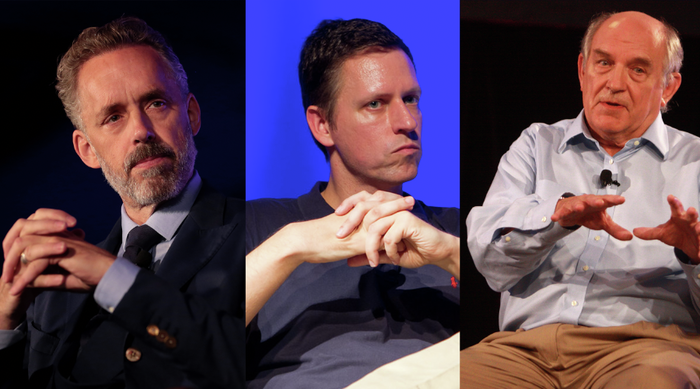Former Archbishop of Canterbury dismisses claims free speech is under attack in Divinity faculty
Rowan Williams told Varsity that he does not ‘believe there is any appetite to restrict anyone’s freedom’, but that there is now an opportunity for the faculty to ‘clarify its commitments’ on race and diversity

Rowan Williams and other leading Cambridge theologians have criticised the Divinity head’s defence of free speech.
The former Archbishop of Canterbury and Master of Magdalene College told Varsity he does not believe there is “any appetite to restrict anyone’s freedom.”
Williams’ comments respond to an email sent last week (17/12) by the faculty head, Professor James Aitken.
The email defended the principle of free speech in light of allegations that a right-wing circle of academics have been meeting with a Trump donor’s chief of staff and invited controversial figures to speak to students including Charles Murray – a sociologist widely denounced for suggesting IQ varied according to race.
In the letter, Aitken said that “as the Head of Faculty I recognise the right of any member to facilitate discussions on topics within the law; doing so does not equate to acceptance or endorsement of those views by that member of the faculty.
“If evidence comes to light that suggests any laws or University rules have been broken then this will be investigated by the appropriate authority.”
However, Williams has dismissed the faculty’s defence by saying that he does not believe there is “any appetite to restrict anyone’s freedom or impugn anyone’s integrity.”
Instead, in a move that will be seen as a demand for action, Williams said that “the current challenges offer an opportunity for the Faculty to clarify its collective commitments on various matters, especially on issues of race and diversity” and that he “look[s] forward to hearing that this opportunity has been taken.”
Leading theologians have joined Williams in hitting back at the faculty’s defence of free speech.
Church of England priest and dean of Trinity Chapel, Michael Banner, told Varsity that while free speech was “safe and well” within the faculty, they were “not doing so well” in teaching about the relationship between Christianity and racism. Banner, who was the first senior Church of England cleric to call for slavery reparations, said that to ensure the “sin of racism is named and shamed”, there was an “urgent need for the faculty to review its courses.”
Critics feel the faculty is falling short of the values it outlined following George Floyd’s death in May 2020 as part of their statement on “Race, Theology and Religion.”
The statement challenged staff and students to “think more deeply about race”, proclaimed “solidarity with BAME students and colleagues” and emphasised their support for Stephen Toope’s message that “it is time to say enough. This must change and we are committed to being part of that change.”
However, Professor Judith Lieu told Varsity that recent events and the absence of any reference to the 2020 statement in Aitken’s email, suggested there was a “danger” that “those aspirations may be forgotten.”
She added that “now, more than ever, we need to affirm that there is no room in our discipline for any activity or speech which undermines the dignity of all people.”
The strongest criticism came from leading theologian and former Peterhouse fellow, John Milbank, who found Aitken’s decision to emphasise that “the Faculty nor University will tolerate bullying and harassment”, “highly disturbing.”
Writing on Twitter, Milbank said that “free speech has to be seamless. Excessive accusations of bullying are ironically part of the very ‘safeguarding’ culture that I thought those supposedly upholding free speech imagined they were challenging.”
Following the letter’s publication last week, the “Divine Dissenters”, a group of rebels within the Divinity Faculty, called the faculty’s response “hostile”, arguing that “there is no attempt to even recognise the legitimacy of our concerns.”
They added: “Our letter attacks no-one: it queries facts, asks for previous ethical positions to be re-affirmed and urges questions be asked for the sake of a University we love.
“Not only is the statement on anti-racism not mentioned; in refusing to acknowledge the real hurt, fear and concern among minority students, there is clearly no interest in the spirit of that anti-racism statement either.”
Varsity have contacted the Divinity faculty for comment.
 News / CUP announces funding scheme for under-represented academics19 December 2025
News / CUP announces funding scheme for under-represented academics19 December 2025 News / Cambridge welcomes UK rejoining the Erasmus scheme20 December 2025
News / Cambridge welcomes UK rejoining the Erasmus scheme20 December 2025 News / SU reluctantly registers controversial women’s soc18 December 2025
News / SU reluctantly registers controversial women’s soc18 December 2025 Film & TV / Timothée Chalamet and the era-fication of film marketing21 December 2025
Film & TV / Timothée Chalamet and the era-fication of film marketing21 December 2025 Features / In-person interviews through student helpers’ eyes20 December 2025
Features / In-person interviews through student helpers’ eyes20 December 2025











